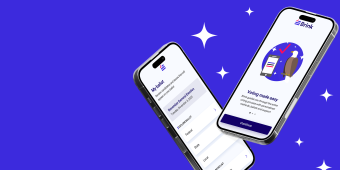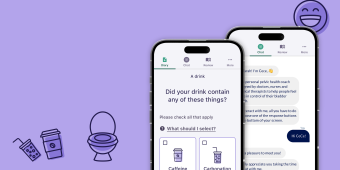
Case Studies
Working to make change
We approach every engagement with purpose and intent. For more than two decades, we have worked to deliver impact through human-centric product innovation. We invite you to read more about how our partnerships translate into positive change for their organizations and community.

Education
Helping AMA healthcare workers get course credit faster

Nonprofit
How Brink built accessible software to empower disabled voters

Digital health
Driving trusted outcomes in pelvic health with a chatbot

Education
Engaging student leaders at Rice University with a custom chatbot

Digital health
Redefining physical therapy with a revolutionary mobile app

Retail
A mobile, wallet-based customer experience platform unleashes a goldmine of data

Comms & media
Boosting active professional development users by 43% with data-driven strategies

Nonprofit
Digital innovation unleashes positive mental health outcomes for LGBTQ+ youth

Industry 4.0
The digital transformation of a century-old manufacturer

Retail
A digital marketplace to help a plant seller disrupt its 100-year-old business
Interested in our industry expertise?

Let’s start a conversation
Let's shape your insights into experience-led data products together.